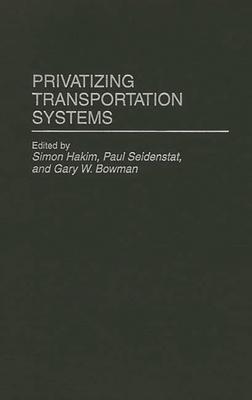Privatization began in the 1970s with Carter's deregulation of some business, and increased with the Thatcher administration in the United Kingdom, the Reagan administration in the United States, and many communist and socialist countries. One area of concern in privatization is transportation--airports, water ports, roads, and mass transit. Privatization can be implemented in financing, construction, operation, and maintenance of the transportation system, the main motives being the belief that the private sector can be more efficient than the public sector, and because public funds are becoming less plentiful for a variety of reasons. The focus is on ideas and innovations for expanding the private role in transportation. Specifically covered are ideas and innovations for expanding the role of private sector in U.S. transportation projects, private financing of urban transportation, airport privatization, water port improvement, toll roads, and competitive contracting for transit services.
The distinguished list of contributors includes the co-recipient of the 1996 Nobel Prize in Economics, William Vickrey. The audience for the work are scholars dealing with the discussions concerning the economics and politics of privatization, business people who are likely to be interested in potential opportunities, governmental regulators and staff, and policy makers.
Privatizing Transportation Systems
Privatization began in the 1970s with Carter's deregulation of some business, and increased with the Thatcher administration in the United Kingdom, the Reagan administration in the United States, and many communist and socialist countries. One area of concern in privatization is transportation--airports, water ports, roads, and mass transit. Privatization can be implemented in financing, construction, operation, and maintenance of the transportation system, the main motives being the belief that the private sector can be more efficient than the public sector, and because public funds are becoming less plentiful for a variety of reasons. The focus is on ideas and innovations for expanding the private role in transportation. Specifically covered are ideas and innovations for expanding the role of private sector in U.S. transportation projects, private financing of urban transportation, airport privatization, water port improvement, toll roads, and competitive contracting for transit services.
The distinguished list of contributors includes the co-recipient of the 1996 Nobel Prize in Economics, William Vickrey. The audience for the work are scholars dealing with the discussions concerning the economics and politics of privatization, business people who are likely to be interested in potential opportunities, governmental regulators and staff, and policy makers.